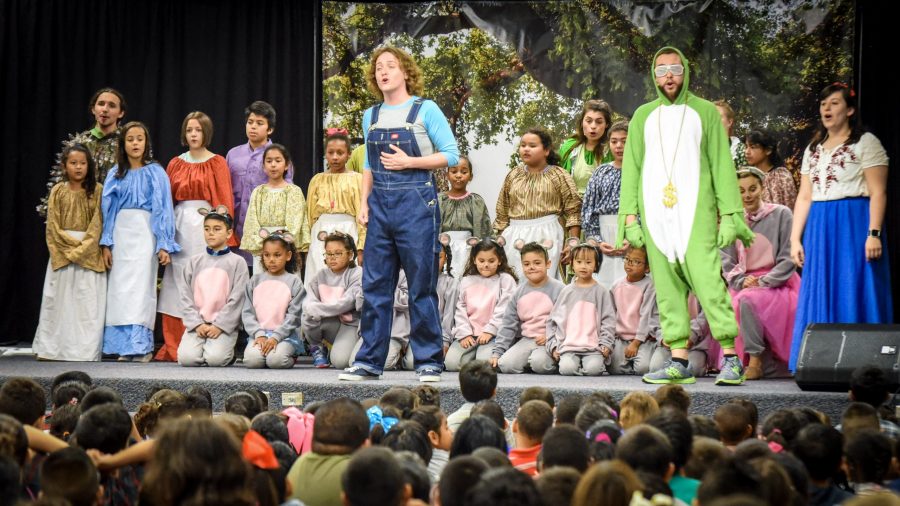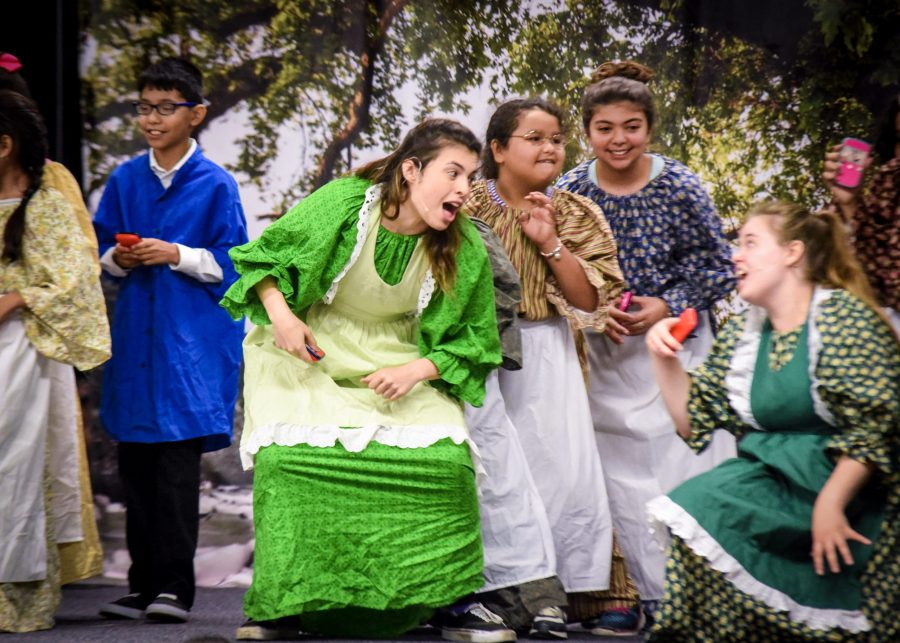UTSA Operetta “Beautiful Dreamer”: cyberbullying never sounded so good
“Beautiful Dreamer”, an operetta about cyberbullying, runs Sunday, Oct. 29 at 3:00 p.m. in the UTSA Main Campus Recital Hall. This show marks the 15 year anniversary and the latest outreach production for Opera on the Run, a UTSA program that annually stages operas suited for kids from schools across San Antonio and other parts of Texas. The UTSA production is free to the public, but the suggested donation is $10 per entrant.
“Beautiful Dreamer” positions itself as a kind of contemporary fairytale, with its plot allegorizing the dangers of social interaction mediated by technology. Protagonist Little Mac (Jacob Crisp) lives in Niceville, a town dead-set on repudiating its good name. Little Mac’s preference for art and song chafes with the depersonalized and mean-spirited digital platforms that have become Niceville’s social corpus—Facebook, Snapchat, Twitter. Exiled from home, Little Mac wanders Niceville’s once-happy environs that negativity has transformed into a crestfallen wasteland. Along the way, he meets three kindred spirits. Isadora Mouse (Katherine Leidlein), Franky T (Jonny Espinoza) and Narrator (Chrystal Frost), who likewise resist the increasing influence of weaponized social media upon their lives while seeking a way to reunite the divided citizens of Niceville.
In an age where so much live theater amounts to touring Broadway runoffs, “Beautiful Dreamer” is a refreshingly home-grown production. The casting, libretto, musical and stage direction is a patchwork of efforts by UTSA students and faculty, led by co-directors and playwrights William McCrary and Michelle Pietri. Down for the Count, a folk/bluegrass band, made up of UTSA music faculty, perform alongside a string ensemble of UTSA students, with original compositions and arrangement by Music Department professor Ethan Wickman. The production is additionally supported by local arts organization, Opera Guild of San Antonio, and proceeds from the show will benefit a San Antonio nonprofit, the William McCrary Endowment for Opera Education.
The folksy, bluegrass music of “Beautiful Dreamer” was inspired by the tunes of 19th century American composer Stephen Collins Foster, sometimes called the father of American music. A Pennsylvania-bred northerner, Foster visited the American south just once in his life, but much of his work features southern themes and locales and are held in a somewhat southern anthems. Foster’s parlor and minstrel songs—from “Oh! Susanna” to “Camptown Races” and “Suwanee River”—were performed by white performers in black face as late as the mid-20th century; see for instance the much-maligned Foster biopic “Swanee River” circa 1939. Hence Foster’s perennial music is justly associated with the United States’ turbulent racial and political history, indelibly shaped by the cultural and political fissures leading up to and during the Civil War in which the songs were composed.
As with Foster’s music, Opera on the Run’s “Beautiful Dreamer” production is shaped in part by current political and cultural divides.
“Having young children ourselves, we wanted to address the serious issue of cyberbullying,” said McCrary. “But in the current divisive culture we find ourselves in right now, the play also addresses the need for change and healing. Art can help us heal.”
The search for societal healing through art underpins the show at all levels.
Ethan Wickman’s passionate, folksy score grounds the operetta’s schmaltzy, kid-friendly libretto. The music of “Beautiful Dreamer” extends the homespun twang of Foster’s Americana, with compositional allusions to the United States’ indigenous musical art forms: hip-hop, jazz and the blues.
From a narrative aspect, Little Mac’s journey resembles a Homeric epic, as he and his comrades wander across a dangerous landscape towards an uncertain goal.
The play balances its family-friendly aesthetic, playful tunes and bright stage design with a haunting narrative that is a transparent allegory addressing our times.
“Technology is our weapon,” threaten the embattled people of Niceville. Lines like these position the heroes and heroines of “Beautiful Dreamer” as stand-ins for citizens of the United States and Western Europe, whose search for social identity seems polluted by misanthropy and self-hatred, a foil to our current moment of domestic, web-based balkanization and international cyberwarfare.
“It is our hope that if we can get one child to stand up to bullying,” said McCrary. “Maybe we can start a chain reaction of positive change.”













